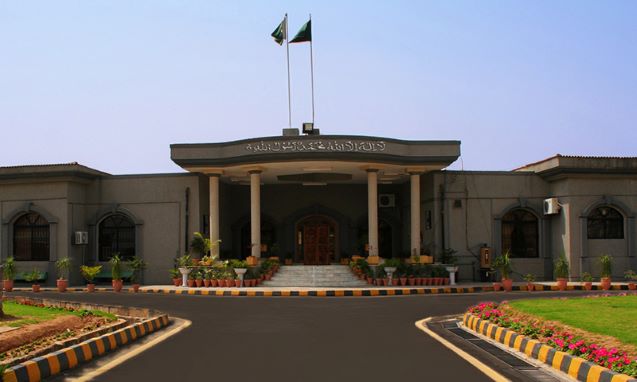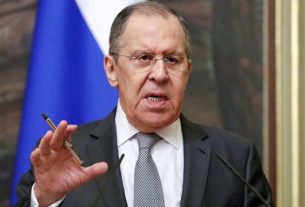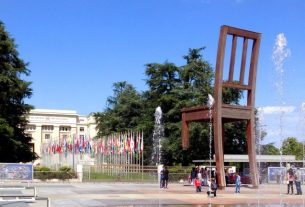Attorney General for Pakistan (AGP) Mansoor Usman Awan on Wednesday informed the Islamabad High Court (IHC) that 22 allegedly missing Baloch students had been recovered while the whereabouts of 28 others were still unknown.
The revelation was made as IHC’s Justice Mohsin Akhtar Kayani resumed hearing a petition regarding the implementation of the recommendations of the Commission of Inquiry on Enforced Disappearances.
The commission was established in 2011 to trace missing persons and fix responsibility on the individuals or organisations responsible for it.
At the previous hearing on Nov 22, the court had directed caretaker Prime Minister Anwaarul Haq Kakar to appear before the IHC today if he failed secure the recovery of more than 50 allegedly missing Baloch students.
Later, during an interview on Geo News’ show ‘Naya Pakistan’, Kakar had said: “State has no hand in these disappearances. Most times, the security forces pick up the people who’re involved in activities which are against the law.”
“The backlash we’re facing right now because according to Baloch leaders, we’re ‘undertaker’ government not taking enough steps towards release of these people,” he had said, questioning the lack of public outcry when lawyers, doctors, and other respected citizens faced similar threats and violence in the past.
The prime minister had added that the count of missing persons in Pakistan was the “lowest in the region”, emphasising it as both an aspect and a reality.
The hearing
Today’s hearing was attended by Interior Minister Sarfaraz Bugti, Human Rights Minister Khalil George, lawyer Imaan Zainab Mazari, and others.
As the proceedings commenced, AGP Awan informed the judge that the premier was out of country and hence could not appear before the court. The prime minister is currently on a week-long trip to the Mideast.
He stated that 22 Baloch students had been recovered and sent back home while 28 were still missing. “I assure the court that we will make every possible effort to ensure the recovery of all these persons,” the AGP promised.
At that, Justice Kayani remarked that it was a matter of fundamental rights, lamenting that things were being done in the country without any fear of consequences.
He asked the interior minister whether he had seen the commission’s report, to which the minister replied in the affirmative.
Justice Kayani observed that all the missing persons in question were students. “These are our people, and the entire blame is being laid on security agencies,” he remarked.
The judge asked the minister to confirm whether any other foreign agency was involved in the act.
“People disappear here, and the administration turns its eyes away from the issue after taking a single action under Section 365 [of the Pakistan Penal Code, which deals with kidnapping],” he said. “Will we realise the gravity of the matter only when we ourselves go missing?” the judge asked.
He said it was the responsibility of the government under Article 4 of the Constitution to recover missing persons. The article states that the right of individuals should be dealt with in accordance with the law.
Justice Kayani expressed concern that a first information report was filed but was followed by “silence”. “Whenever such questions are raised at an international level, we find ourselves lacking answers,” he added.
In his statement before the court, Interior Minister Bugti asserted that there was no justification for the disappearance of any individual who had gone missing. “We will fulfill our responsibility,” he assured the court.
The judge noted that individuals tend to disappear after being picked up by police personnel.
In his response, Bugti said that the missing persons included several people who were “judicial absconders”. He mentioned that some had also fled to Afghanistan.
“We will address the matter on a case-by-case basis, and the commission is already looking into such cases,” the minister added.
Justice Kayani stated that the purpose of summoning the prime minister was so that he could meet the families of missing persons. “You have limited time, and the prime minister has to return to Balochistan,” he added, referring to the remaining caretaker government’s remaining tenure.
The court directed the interior minister to meet the families of the 28 missing persons and listen to their grievances.
Justice Kayani further noted that “the system is being run due to sacrifices made by personnel of the Pakistan Army and security agencies”.
The judge emphasised that anyone involved in anti-state activities must be dealt with according to the law but should also be presented before the court.
The minister reassured the court that every case would be thoroughly examined. He added that the interior ministry had appointed an additional secretary as the focal person for the missing persons’ case.
Subsequently, the court instructed the petitioner to provide all information to the focal person. Meanwhile, Justice Kayani ordered the focal person to investigate each case and submit a report in the court.
“Is it not a failure of the state if disappearances continue despite all such efforts?” Justice Kayani asked.
“Why are people detained by institutions not presented before the court?” the judge asked, adding that the “problem is that the institutions facing allegations are also the ones responsible for investigating the matter”.
He emphasised that individuals in top positions could not consider themselves exempt. Justice Kayani also warned of registering a case against the prime minister and the interior minister if missing persons were not recovered.
“The prime minister and you will then have to go home,” the judge told the interior minister.
He then directed the minister to meet families of missing persons within two days and insisted that the court needed results in the next sitting. The hearing was later adjourned till Jan 10.__dawn.com





